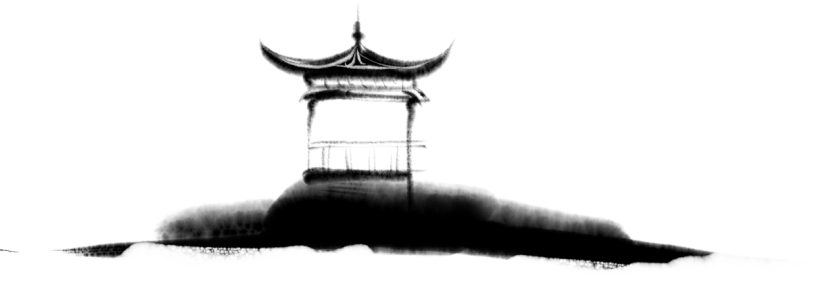
“It is easy to eliminate cold, but difficult to dispel dampness.” The presence of dampness in the body can lead to various diseases. Many people know that they need to eliminate dampness, but the dampness in the body can be categorized as either “cold” or “heat.” The methods for dispelling dampness differ based on its properties.

Dampness Easily Penetrates, Divided into Cold and Heat

When dampness encounters cold, it becomes cold dampness: for example, in winter, if the climate is dry, people can tolerate the cold, but if the dampness is heavy, it becomes uncomfortable. The winters in the south are more unbearable than those in the north due to the heavier dampness and cold dampness.
When dampness encounters heat, it becomes damp heat: for instance, during the hot and humid days of summer, it can be suffocating, which is clearly less pleasant than dry, sunny weather.
How to Determine ‘Cold Damp’ or ‘Damp Heat’

Cold dampness is primarily caused by two factors: externally, living in a damp environment, exposure to rain or water, and prolonged lying on damp ground; internally, consuming cold foods and drinks, which damage the spleen and stomach.
Major Symptoms of Cold Dampness
1. Tongue: The tongue is swollen with teeth marks. The tongue coating is thick, white, and greasy, sometimes with a layer of moisture floating on top.
2. Urine: The urine is clear and long, without much odor, resembling water.
3. Stool: Diarrhea caused by cold dampness is slow in onset, with a constant feeling of discomfort in the abdomen. When nervous or after eating greasy foods, there is an urge to use the toilet, with frequent, unformed, and watery stools, referred to in TCM as “pian tang.” Chronic diarrhea is mostly caused by spleen and stomach deficiency with cold.
4. Body Odor: Individuals with a cold damp constitution sweat with cold skin and generally have little body odor.
People with cold dampness often have yang deficiency, with excess yin and deficient yang, leading to a fear of cold, wind, and cold foods. The internal obstruction of cold dampness hinders the flow of qi and blood, causing stagnation in the meridians, resulting in pain; thus, individuals with a cold damp constitution often feel pain throughout their body.
Those with significant cold dampness should soak their feet in water at 42°C to 45°C, which helps dispel cold dampness, invigorates the spirit, enhances appetite, and promotes sleep. After soaking, it is best to perform some simple massages, such as gently pressing on the soles of the feet (Yongquan point), toes, and heels to find any tender points, pressing each point for three minutes for optimal results.

Major Symptoms of Damp Heat
1. Tongue: The tongue is red, with a thick yellow coating.
2. Urine: The urine is yellow and has a strong odor.
3. Stool: Diarrhea caused by damp heat is urgent and severe, often described as “violent and pressing,” with a feeling of urgency and heaviness after using the toilet, accompanied by a burning sensation at the anus and foul odor.
4. Body Odor: Individuals with a damp heat constitution often have strong body odor, including conditions like bromhidrosis, axillary odor, and foot odor.
People with damp heat experience obstruction in transformation due to dampness, and because of internal heat, consuming rich and greasy foods can lead to heat symptoms such as bad breath, oral ulcers, and acne.
The Chengshan point is a major point for dispelling dampness; many people feel significant soreness and pain when pressing this point, indicating the presence of dampness in the body. After massaging this point for a while, one may feel a slight warmth in the body, indicating the rise of yang qi and reduction of dampness.
Additionally, maintaining good lifestyle habits can help avoid the accumulation of dampness. The following four habits can easily contribute to the increase of dampness in the body:
1. Staying up late or overworking. Ancient texts such as the “Treatise on the Spleen and Stomach” state: “Overwork first harms the spleen.” When the spleen is damaged, the transformation of food and water in the body is affected, naturally increasing dampness.
Recommendation: Balance work and rest, and aim to sleep before 11 PM each day.
2. Prolonged sitting. Sitting for long periods can lead to insufficient blood supply, increasing fatigue and muscle soreness, and affecting the discharge of dampness.
Recommendation: Stand up and move around every hour, stretching the muscles.
3. Indulging in cold or heavily flavored foods, such as raw and cold foods or oily, overly sweet, or salty foods, can burden the digestive system. Insufficient gastric motility and blocked meridians increase the chances of dampness accumulation.
Recommendation: Maintain a balanced diet with a mix of meat and vegetables; when cooking cold ingredients, it is best to add warming spices (such as scallions and ginger) to balance.
4. Alcohol consumption. Alcohol directly irritates the gastric mucosa and increases the burden on the liver. Individuals who drink excessively often have weak spleens and stomachs, exacerbating internal dampness.

 END
END
Source: Fifth Hospital of Xi’an
Editor: Yifan | Editor-in-Chief: Yingyan
Visuals | Wei Pengfei
Reviewed by | Liang Yuan

Tap to see more, you look your best!


